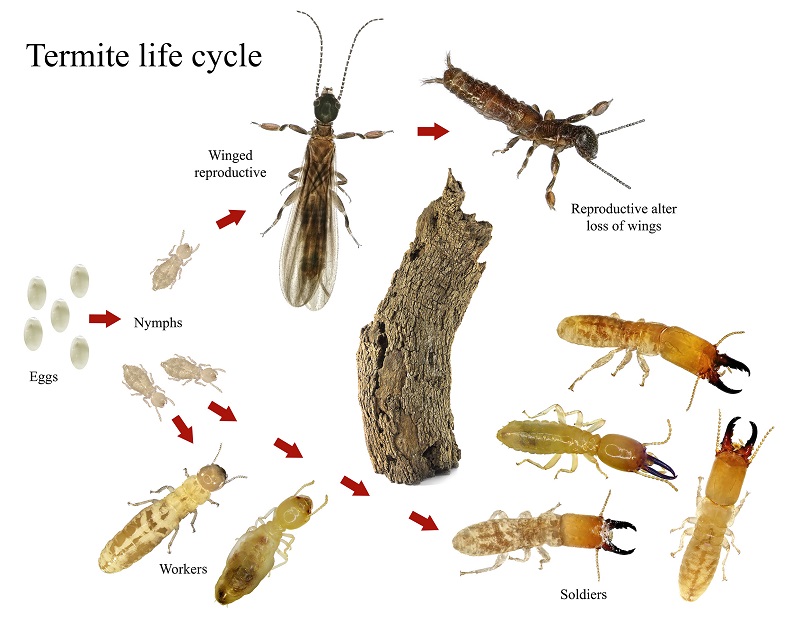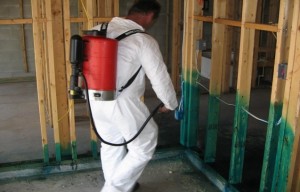Environmental Effect of Insect Control: Harmonizing Performance With Sustainability
The environmental effect of insect control is a crucial issue that calls for a fragile balance between accomplishing efficiency in handling insects and guaranteeing sustainability of our environments. As we make every effort to protect our plants, homes, and health and wellness from the threats postured by pests, the methods we employ can inadvertently damage the setting. From making use of hazardous chemicals that leak right into our soil and water to the unintended repercussions on non-target varieties, the repercussions of traditional bug control techniques are far-ranging. Nevertheless, there are emerging strategies that use expect an extra sustainable technique to pest management. These options not only purpose to deal with the prompt pest problems yet likewise think about the long-term health and wellness of our planet.
Harmful Chemicals in Insect Control
The utilization of hazardous chemicals in insect control poses significant ecological and health and wellness risks that require cautious factor to consider and reduction approaches. Herbicides, pesticides, and pesticides are commonly made use of to get rid of pests, however their prevalent application can lead to unexpected consequences. These chemicals can infect soil, water sources, and the air, influencing not just the targeted parasites yet also helpful insects, wild animals, and humans.

To attend to these risks, integrated insect administration (IPM) techniques are being promoted as a much more lasting alternative. IPM includes a mix of methods such as organic control, environment manipulation, and the targeted use of chemicals as a last hope (ant control mathews nc). By taking on a holistic method to pest control, we can lessen the ecological and health and wellness influences connected with dangerous chemicals while successfully handling pest populations
Effect On Non-Target Variety
Taking into consideration the unintentional effects of bug control approaches, the effect on non-target species is an important aspect that calls for thorough evaluation. While insect control actions aim to target details parasites, various other organisms in the community might be inadvertently affected. Non-target varieties, consisting of valuable insects, birds, creatures, and also plants, can endure indirect or direct injury from chemical applications or organic control approaches.
Pesticides can have sub-lethal or lethal results on non-target species. As an example, pesticides created to deal with a specific bug pest may harm pollinators like or all-natural predators such as ladybugs. Additionally, chemical deposits can gather in the environment, impacting non-target organisms gradually. Organic control agents, if not species-specific, can pose threats to unplanned targets, interfering with the environmental equilibrium.
To reduce the influence on non-target species, incorporated parasite management (IPM) strategies that emphasize an all natural strategy to pest control are recommended. These methods prioritize the use of eco-friendly methods, reducing injury to advantageous organisms while efficiently taking care of pest populations. Carrying out comprehensive danger assessments and monitoring the results of bug control initiatives are crucial steps in securing non-target types and advertising overall community health.
Dirt and Water Contamination
Unintentional ecological repercussions of pest control techniques prolong past influencing non-target types, with significant ramifications for soil and water contamination. Pesticides, herbicides, and chemical plant foods utilized in pest control can leach into the soil and pollute groundwater, posturing a danger to both aquatic and earthbound ecosystems. Dirt contamination can disrupt the balance of bacteria vital for nutrient biking and plant development, bring about decreased soil fertility and performance. These chemicals can continue in the environment for extensive durations, gathering in the soil and potentially going into the food chain.
Water contamination is another critical issue associated with insect control practices. Drainage from farming areas treated with pesticides can lug these chemicals into close-by water bodies, affecting aquatic organisms and water quality. Impurities in water sources can have significant effects, impacting not just marine life yet additionally human health and wellness via the usage of infected water or aquatic microorganisms. To alleviate soil and water contamination from insect control activities, integrated bug monitoring strategies that focus on sustainability and decrease chemical inputs are critical.
Air Air Pollution From Chemical Usage
Exposure to air-borne pesticides during farming applications postures a significant problem for air pollution control steps. In addition, pesticide drift, where chemicals are lugged by the wind to unintended locations, can lead to the contamination of nearby ecological communities and water bodies.

Techniques for Lasting Bug Control
In the realm of agricultural practices, executing lasting pest control investigate this site methods is paramount for keeping eco-friendly balance and safeguarding plant yields. Lasting parasite control emphasizes using eco friendly methods to handle insect populaces properly while lessening harm to non-target organisms and ecological communities. Integrated Bug Management (IPM) is an extensively embraced technique that incorporates biological, cultural, physical, and chemical control techniques to accomplish long-term bug management remedies.
Plant turning and diversification are additionally effective methods to interfere with pest life cycles and create much less beneficial problems for bugs to grow. Eventually, by integrating these lasting parasite control techniques, farmers can achieve a balance between pest management efficiency and environmental stewardship.
Verdict
To conclude, the environmental effect of bug control approaches have to be thoroughly thought about to balance efficiency with sustainability. Dangerous chemicals made use of in pest control can result in dirt and water contamination, air pollution, and injury non-target varieties - ant control services. It is essential to implement sustainable bug control techniques to minimize these adverse impacts on the environment and promote a much healthier environment for future generations
By embracing a holistic strategy to pest control, we can lessen the ecological and health influences connected with damaging chemicals while properly managing pest populations.

To alleviate the air contamination triggered by chemical use, it is crucial to adopt integrated pest administration methods that focus on the usage of non-chemical bug control approaches, such as crop turning, natural predators, and resistant plant varieties. Sustainable insect control highlights the usage of environmentally pleasant methods to take care of pest populations successfully while minimizing damage to non-target microorganisms and communities. Integrated Insect Administration (IPM) is a commonly adopted technique that integrates organic, social, physical, and chemical control techniques to accomplish lasting bug administration services.